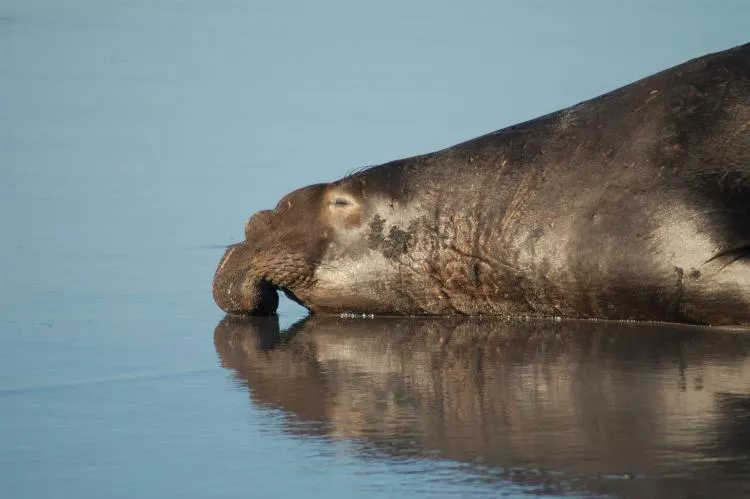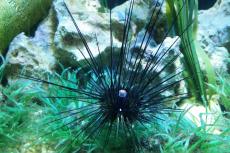Elephant seals sleep and dive at the same time
Northern elephant seals can sleep for less than two hours per day at sea and do so while diving to depths of around 300 metres. Unlike other marine mammals, they enter full REM sleep with accompanying paralysis, but do so at depths below those occupied by their predators.
A new study involving elephant seals fitted with caps similar to those worn by humans in sleep clinics to measure electroencephalographic activity, or brain waves, has revealed the seals take short naps during deep dives. Unlike other marine mammals, they enter rapid eye movement, or REM, sleep, with accompanying paralysis, but do so at depths below those occupied by their predators.
Sleep spiral
When the seals experience sleep paralysis as they enter REM sleep, they lose control of their posture and continue to spiral down in a corkscrew pattern. The researchers refer to this as a “sleep spiral.”
Time-depth profiles also revealed seals averaged only two hours of sleep per day for seven months, rivalling the record for the least sleep among all mammals, as opposed to the 10 hours they catch while snoozing on the beach during the breeding season.
The elephant seals can spend seven or eight months on foraging trips in the North Pacific Ocean and travel for thousands of miles away from land, which led researchers to question how and where the marine mammals sleep in the high seas.
The research marked the first time scientists recorded brain activity in free-ranging wild marine mammals, capturing data from 104 sleep dives.
























